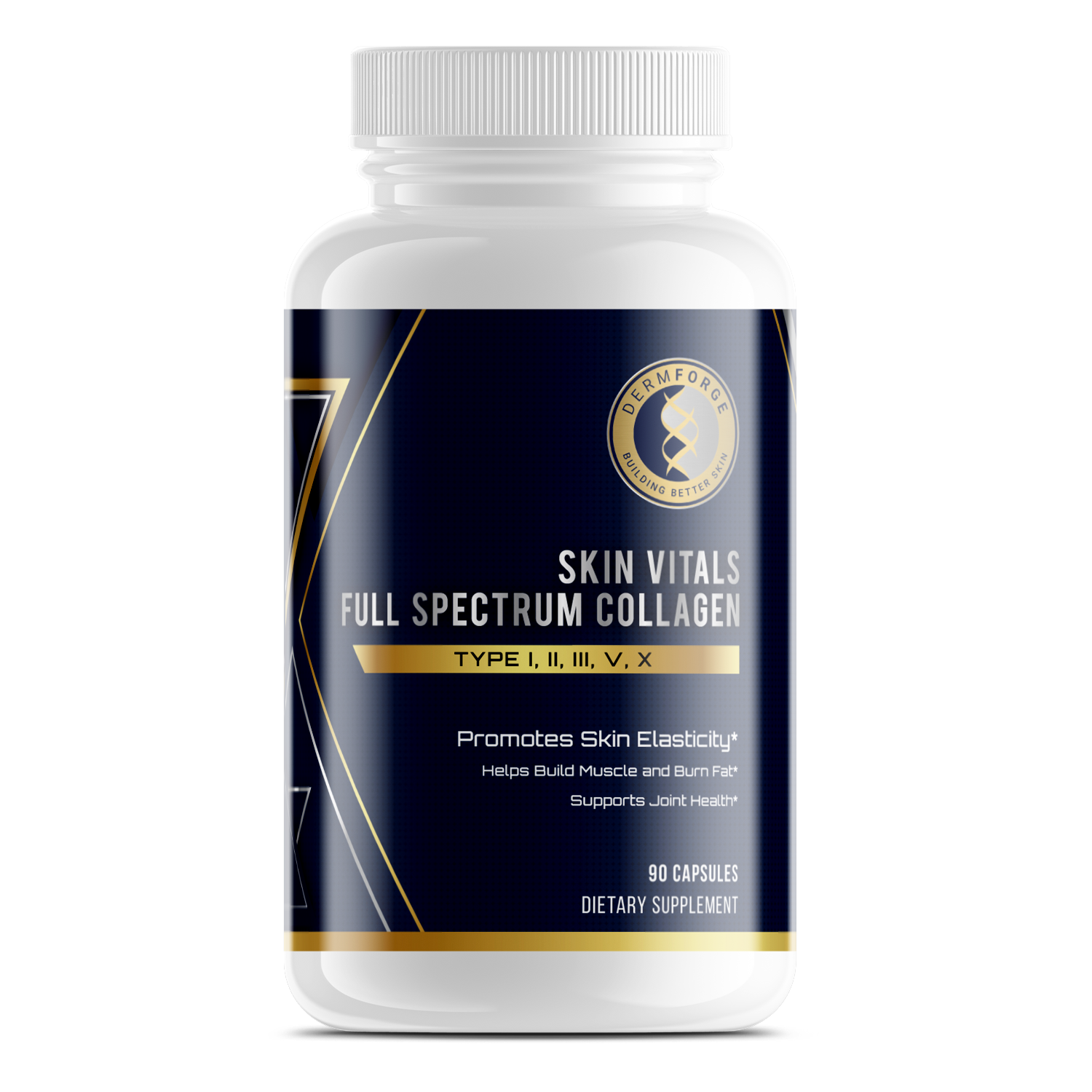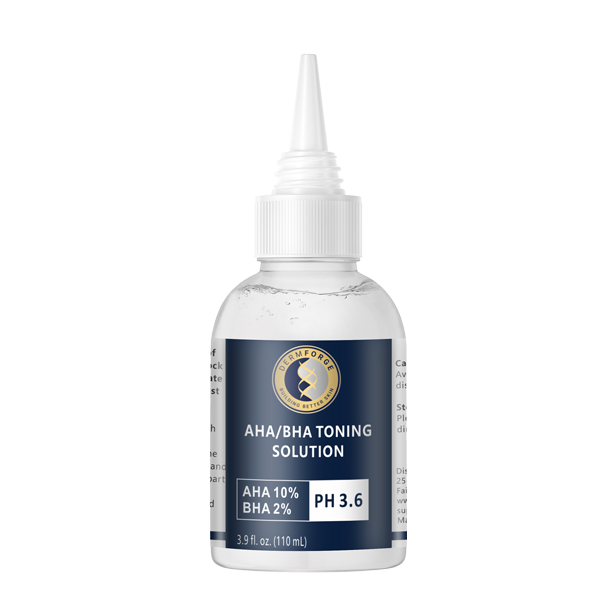Skin care trends often shift, but glutathione continues to gain attention for its internal support. Glutathione supplements for the skin offer a way to help your body fight oxidative stress from the inside out. This antioxidant occurs naturally and plays a role in skin clarity, tone, and overall balance. Therefore, many people use it to target dullness, dark spots, or uneven pigmentation.
Glutathione supports your skin by reducing free radicals and calming inflammation. These effects work beneath the surface, not just at the top layer. However, results depend on consistency, dosage, and the type of supplement you choose. Some people take capsules, while others prefer powder or liposomal forms. Each has its own strengths, but they all aim to boost your internal antioxidant defense.
Additionally, glutathione works better when paired with other nutrients. Ingredients like vitamin C or NAC help improve absorption and maintain steady levels. Therefore, many formulas include them as part of a daily routine. You may start noticing brighter skin and better texture after a few weeks of regular use.
If you're looking for a supplement to support your skin naturally, glutathione offers a well-studied option. It works with your body’s systems rather than against them. With time and consistency, many people see visible improvements without relying on harsh topicals.
Understanding how glutathione works can help you decide if it's right for your goals. When used as part of a complete skincare plan, it may provide lasting benefits you can feel and see.
What Is Glutathione and How Does It Work?
Glutathione is a natural antioxidant found in nearly every cell in your body. It plays a central role in reducing oxidative stress. This process helps protect cells from free radical damage that builds up from pollution, sun exposure, and aging. Your body makes glutathione from three amino acids: glutamine, glycine, and cysteine.
Therefore, it supports more than just general health. It also influences the way your skin looks and functions. Lower levels of glutathione often show up as dullness, uneven tone, and slower skin recovery. However, healthy glutathione levels help defend against those visible signs. They support cell renewal and reduce inflammation that can lead to irritation.
Additionally, glutathione supports the balance of melanin production in the skin. Melanin gives your skin its pigment. When oxidative stress increases, melanin can become uneven. This may result in spots or blotchy patches. Therefore, maintaining optimal levels helps the skin appear clearer and more consistent.
Glutathione supplements for the skin work by raising internal levels of this antioxidant. As your body absorbs the supplement, it can support brighter tone from the inside out. However, the effectiveness depends on absorption and dosage. Some users combine glutathione with vitamin C to improve its function.
You may not notice instant results. Like most skin support methods, it takes time and consistency. Still, many people report visible changes within a few weeks of daily use. Additionally, overall skin quality may improve as oxidative stress decreases.
Supporting your body’s natural defenses can help you maintain a more even, healthy-looking complexion over time.
Skin Benefits of Glutathione Supplements
Glutathione supports your skin by reducing oxidative stress that builds up from daily exposure to sunlight, pollution, and lifestyle factors. This antioxidant works by neutralizing free radicals before they can damage healthy skin cells. Therefore, it helps maintain smoother texture and more even tone over time.
One of the most talked-about effects is skin brightening. Glutathione interferes with melanin production, which helps reduce discoloration. Additionally, many people use it to fade dark spots or hyperpigmentation caused by acne, sun damage, or aging. Consistent use may help your complexion appear clearer and more balanced.
Glutathione supplements for the skin work gradually. However, users often report a brighter, more even look after several weeks. This is because melanin production shifts and inflammation decreases with steady use. Therefore, the skin reflects a healthier state from within.
Additionally, these supplements help defend against early signs of aging. Oxidative stress breaks down collagen and speeds up fine lines. By reducing this damage, glutathione helps preserve firmness and elasticity. It also supports faster skin recovery after irritation or exposure.
Your overall complexion may feel more resilient with continued use. Some users notice fewer blemishes and less dullness. Others find their skin reacts better to products and environmental changes. Therefore, glutathione may support broader skin goals beyond brightening alone.
If you want a well-rounded internal approach to skin care, this antioxidant may offer benefits. Its protective effects can complement your daily routine and support long-term skin clarity.
Oral vs. Topical Glutathione: What’s More Effective?
Glutathione is available in both oral and topical forms, but they work differently inside your body. Oral supplements travel through your digestive system and enter the bloodstream. Therefore, they provide systemic support that can affect your entire body, including your skin. Many people choose oral forms to support consistent internal levels.
Topical glutathione, on the other hand, works from the outside. It is usually found in creams or serums meant to target specific areas. However, absorption through the skin is limited. Large molecules often struggle to pass through the skin barrier. Therefore, results may be more localized and less predictable.
Additionally, oral glutathione is often combined with vitamin C or other ingredients to improve absorption. Some people choose liposomal forms for even better delivery. These formats allow glutathione to circulate through your body and reach skin cells from within. Over time, this method supports gradual improvements in skin tone and clarity.
Topical products may still be useful for short-term goals. However, their effects tend to stay near the surface. If you're trying to address deeper issues like oxidative stress or uneven tone, oral forms may offer more consistent support.
Understanding the difference can help you choose what fits your goals. If you want broader support, oral delivery has more potential. If you're focused on a small area, a topical formula may still help.
Glutathione supplements for the skin are often more effective when taken orally. They work at the cellular level and support long-term results across multiple skin layers.
How Glutathione Interacts with Other Nutrients
Glutathione works best when supported by other nutrients. Some ingredients help your body produce more of it, while others protect its activity. Vitamin C is one of the most common additions. It helps recycle glutathione and keeps it active longer. Therefore, many formulas combine the two for better overall results.
Additionally, alpha-lipoic acid can help raise and maintain glutathione levels. This antioxidant works in both fat and water environments, which helps protect cells across different tissues. When paired with glutathione, it strengthens your skin’s defense against oxidative stress. Therefore, it can contribute to smoother, healthier-looking skin over time.
Another helpful compound is NAC, or N-acetylcysteine. This ingredient provides cysteine, which is a building block of glutathione. Without enough cysteine, your body cannot make glutathione efficiently. By adding NAC to your supplement routine, you support natural production from within.
Some supplements combine all of these ingredients into one formula. Others allow you to build your own stack. However, combining the right nutrients gives you better long-term results. Each ingredient supports glutathione from a different angle. Together, they create a more stable and effective system for cellular repair.
Glutathione supplements for the skin often include these co-factors to support performance. The goal is to keep levels steady and active where your skin needs it most. Additionally, these combinations may help you see visible improvements sooner.
If you're looking to get more from your supplement, consider what ingredients work alongside it. Synergy matters when it comes to antioxidants and skin health.
Safety, Dosage, and What to Expect Over Time
Most people tolerate glutathione well when taken as directed. It occurs naturally in your body, so side effects are rare. However, taking extremely high doses without supervision may cause stomach upset or mild headaches. Therefore, starting with moderate amounts is often the best approach.
Typical daily doses range from 250 to 1000 milligrams. Some people take more depending on body weight or specific goals. However, you should talk with your healthcare provider if you’re on medication or have existing health conditions. Additionally, combining glutathione with vitamin C may support better absorption and results.
Glutathione supplements for the skin take time to work. You may not notice immediate changes in the first week. However, with daily use, visible improvements often begin within four to eight weeks. These may include brighter tone, smoother texture, and fewer dark spots.
Consistency makes a difference. You need to maintain steady levels in your body to support long-term skin benefits. Therefore, missing doses may delay visible results. Additionally, drinking enough water and following a balanced diet can support how your skin responds to supplementation.
Over time, glutathione may also support clearer skin and reduced inflammation. Many users report fewer breakouts and a more even appearance. However, results vary based on your age, lifestyle, and other skincare habits. It helps to track your skin monthly to notice gradual changes.
If you stay consistent, you’ll likely see steady improvement without harsh side effects. This makes glutathione a low-effort option for supporting skin health from within.
Choosing a High-Quality Glutathione Supplement
When choosing a glutathione supplement, start by looking at the brand’s reputation. Established companies tend to follow better manufacturing practices. However, newer brands may also offer quality products if they share clear ingredient details and testing protocols. Always review the label to see exactly what you’re taking.
Additionally, look for third-party testing. Independent verification helps confirm that the product contains what it claims. This also checks for purity and safety. Therefore, third-party tested products offer more peace of mind, especially for daily use.
Delivery format matters as well. Capsules are common and convenient, but absorption rates can vary. Powder allows flexible dosing, although taste may be a concern. Liposomal delivery may improve absorption by wrapping glutathione in a fat layer. Therefore, it may be more effective for some users.
Ingredient transparency should also guide your decision. You want a product that lists all ingredients clearly. Avoid blends that hide exact amounts. Additionally, check if the supplement includes co-factors like vitamin C or NAC. These can support better absorption and stronger results over time.
Glutathione supplements for the skin work best when taken consistently. Therefore, pick a format and brand you’re likely to use every day. Taste, texture, and convenience all affect long-term habits.
If you're unsure where to start, compare labels side by side. Look for products with verified dosing, supportive ingredients, and reliable sourcing. This helps you avoid low-quality options that may waste your time and money.
With the right product, you can support brighter, clearer skin from the inside out.
Conclusion
Glutathione supports your skin by protecting cells, reducing inflammation, and promoting a more even tone. When taken consistently, it offers real benefits. However, not all forms work the same way. Oral supplements tend to provide broader support than topical products. Therefore, choosing the right format matters.
Additionally, results take time. Most people need several weeks of regular use to notice visible changes. Skin may appear brighter and clearer as glutathione levels stabilize. You may also notice fewer blemishes or signs of irritation. However, lifestyle habits and other skincare products can affect outcomes.
Glutathione supplements for the skin work best when supported by co-nutrients like vitamin C or NAC. These ingredients boost performance and absorption. Therefore, checking the full ingredient list is important before starting a new product.
You should also consider safety and testing when selecting a supplement. Reputable brands provide detailed labels and third-party verification. Additionally, the right delivery format can help your body absorb more of the antioxidant. Powder, capsule, and liposomal forms all offer different advantages based on your routine.
If your goal is clearer, more balanced skin, glutathione offers a practical solution. By supporting cell repair and fighting oxidative stress, it helps your skin function better from within. Over time, that support can translate into visible improvement.
Consistent use, clean ingredients, and the right dosage all matter. With patience and the right product, you can give your skin the internal support it needs.







